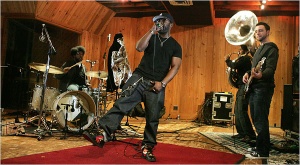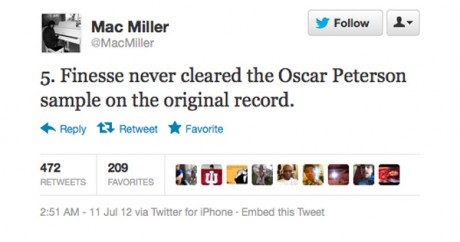Sampling (hip hop)

Contents
Background
Sampling takes place in many different genres, but hip-hop specifically was founded upon this art form. Originally perceived atop turntables in the Bronx, New York in the 1970s, hip-hop was created out of bits and pieces of other genres that came together to create a new sound [4]. Usually, the invention of the break-beat is accredited to DJ Kool Herc (born Clive Campbell), who first created the sound through a DJ routine that he famously deemed "The Merry Go Round." During this routine, Kool Herc would reportedly "spin the percussion breakdown from two copies of the same record one after the other, effectively replaying the break and extending it."[5] The achievement of this steady beat both allowed and encouraged hip-hop's participants to rap and dance at a consistent pace. After first being publicized by DJ Kool Herc, the strategy for sampling was further perfected by early influencers such as Grandmaster Flash and Afrika Bambaataa.
The evolution of hip-hop from an underground subculture into a mainstream art-form has brought to the practice of sampling a seriously significant share of attention. Hip-hop has often been criticized for having too repetitive beats, but the tracks' samples are still often drawn from a wide variety of genres, ensuring diversity of sounds. Some of the most iconic hip hop songs sample from genres other than hip hop. Pete Rock & CL Smooth's They Reminisce Over You (T.R.O.Y.) samples The Beginning of the End’s “When She Made Me Promise.” The legendary hip hop crew, A Tribe Called Quest, sampled rock music in one of their most recognizable songs, “Can I Kick It.” They pulled sounds from "Walk on the Wild Side” by Lou Reed to make one of hip hop’s most iconic songs of all time.
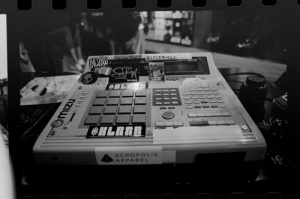
Methods
Loops
The most popular way to sample in hip hop is by using the drum and percussion sections of a song. After picking out the most favorable portion of the break, producers often loop that snippet to create the base layer of a hip hop beat. Now, artists are running into legal issues with sampling and don’t want to spend money to get those samples cleared, so producers are turning to sound kits creation. A sound kit is a piece of software that contains pre-selected sounds. Producers can pick and choose the type of sound kit they want and purchase them without having to worry about clearing individual samples. [1]Live Instrumentation
Many of the brass and string sections in old records require sample clearance. A way to get around sampling classic records is to have professional musicians and make your own sample. This way it sounds just as soulful, but somebody in the recording studio performed it alongside the producer. Today, producers make their own sound kits or sample libraries. Hip hop producer Lex Luger became famous after producing “BMF” for Rick Ross. Ever since then producers have done their best to imitate his sound. If they want to, they can simply download his sound kit and use the same drums that he uses. Some groups like the Legendary Roots Crew simply include their band as part of the group.[6]
Ethical Issues
The ethical issues relating to sampling in hip hop music are that these artists use previously produced and copyrighted work in order to make their own. The counterpoint to this argument is that the artists sample a restricted length of time from the tracks, so as not to violate any copyright laws. Many artists also credit the original artists' whose music they are sampling. Yet while many artists do credit the original work, with the rise of SoundCloud and other mp3 sharing websites, many producers are stopped crediting artists and used samples without permission. This has led to illegal sampling and a variety of issues for big studios getting their work ripped off by no name artists in their basement.
Copyright Law
Copyright Act of 1976
A copyright is a form of protection, codified by the Copyright Act of 1976 (Act), for authors of original works in literature, drama, music, visual arts and other creative arts subjects. This specific Act gives musical recordings copyright protection on two different levels. The first level consists of lyrics and music notation. The composition itself is protected. On a separate level, the Act protects sound recordings. Unauthorized sampling can be copyright infringement if one can prove proof of ownership, proof of copying, and unlawful appropriation. Many producers make it difficult for owners to prove that copying has taken place by changing the pitch and tempo of samples. With today’s technology, producers have the ability to electronically modify the samples they use as well. Sampling artists are permitted to remake an original song as long as the new song is substantially similar to the original song. In turn, the sampling artist must pay the original artist $0.94 for every copy of the song they sell for a profit.[6]
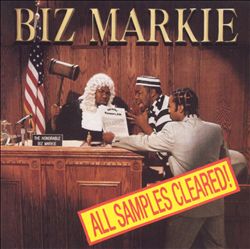
Fair Use Defense
There are exceptions to the exclusive rights that copyright owners have been granted. The fair use doctrine allows persons other than the actual owner to use the copyrighted material without permission, as long as it is in a reasonable manner. Whether or not the fair use doctrine overrides copyright infringement is up to the court system. The criteria for such instances include the alleged infringer’s purpose and character for the use, the nature of the use, the substantiality of the portion used, and the impact of the use on the potential market for the copyrighted work. This is especially the case when dealing with sampling in music.[6]
Controversy
Artists
Since its inception, hip hop has been surrounded in controversy. Whether it’s N.W.A.'s protest music or Eminem’s horrorcore, everybody seems to have an opinion on hip hop music/culture. Before it transcended into the mainstream music industry, hip hop was often written off because of its use of sampling. Many critics believed that sampling wasn’t real art because disk jockeys were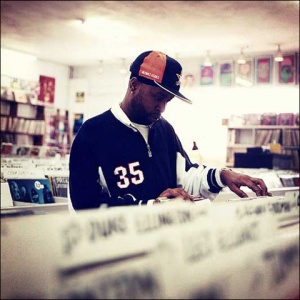
Legal
In today’s society things get even trickier because many rappers give their music away for free. If artists aren’t charging for their music and not making money off of downloads, then many of those artists feel that they don’t need to pay any sort of royalties to the original artist.Now that hip hop is woven into the social fabric of popular culture, the genre has become extremely lucrative. In turn, sampled music is getting more attention than ever. Those artists that are being sampled are rightly seeking credit for their work, and the argument of copyright infringement continues to develop with the rest of the genre.
Kanye West
Similarly, Kanye West is well known for sampling in his music. West has been known to sample everything from Bon Iver to Curtis Mayfield. Recently he has been sued for his use of a sample on his latest album, My Beautiful Dark Twisted Fantasy. Kanye West made headlines with his use of a sample from Daft Punk’s “Harder, Better, Faster, Stronger.” He has been getting flack for sampling so much in his music, and, finally, West is being sued for copyright infringement for a sample that he used on two different tracks[7].
Mac Miller
This is particularly true for Philadelphia MC, Mac Miller. He is the first person on an independent label to reach #1 on the Bilboard 200 charts since Snoop Dogg’s debut album. Mac Miller is currently getting sued for using a beat that wasn’t his on a song he gave away for free years before he got famous. Many would argue that what Mac Miller did is the essence of hip hop. Ironically enough Lord Finesse, the maker of the beat, used a sample in the original beat that he may or may not have originally payed for[8].
See Also
References
- ↑ 1.0 1.1 1.2 http://en.wikipedia.org/wiki/Sampling_(music)
- ↑ August 2005. Steve Howell. The Lost Art of Sampling: Part 1 http://www.soundonsound.com/sos/aug05/articles/lostscience.htm
- ↑ http://en.wikipedia.org/wiki/Break_(music)
- ↑ http://en.wikipedia.org/wiki/Hip_hop
- ↑ https://www.theguardian.com/music/2011/jun/13/dj-kool-herc-block-party
- ↑ 6.0 6.1 6.2 Music Sampling Lawsuits: Does Looping Music Samples Defeat the De Minimis Defense? 2002. Stephen R. Wilson. Vol 1. No 1.
- ↑ September 30, 2012. Huffington Post. Kanye West Sued For Sampling Songs On 'My Beautiful Dark Twisted Fantasy' http://www.huffingtonpost.com/2012/09/30/kanye-west-sued-my-dark-twisted-fantasy_n_1927455.html
- ↑ July 12, 2012. Steven J. Horowitz. Lord Finesse Issues Statement Regarding Mac Miller Lawsuit http://www.hiphopdx.com/index/news/id.20398/title.lord-finesse-issues-statement-regarding-mac-miller-lawsuit
